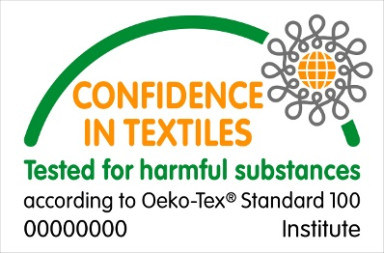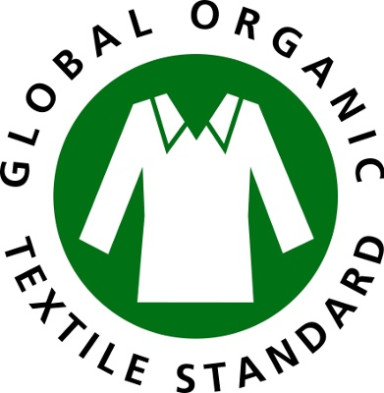Organic cotton
Organic cotton is much healthier for both people and the planet. 'Work with nature, not against nature'. The farmers who grow the cotton are less exposed to chemicals. Again, when the cotton is fair trade, farmers receive a guaranteed fair price for this.
Farmers who work organically do not use pesticides but rely on organic fertilization and crop rotation. Vegetable and animal waste is used to fertilize the land. Instead of chemical pesticides, insects are used to battle with the enemies of cotton. By using crop cultivation and combining it with other crops, beneficial insects end up on the cotton plant and ensure that the damage of other insects is limited. Farmers obtain the label for organic cultivation only if they use soil that has been free of synthetic pesticides for at least three years.
There are quite a few misconceptions about the use of labels. Manufacturers now quickly use a bio / organic label in their clothing. Unfortunately, these are not certified labels and thus not controlled by the government.
For example, to get an OE-Blend Quality Mark from Textile Exchange, you only need to use 5% organic cotton in your garment. For a GOTS certification, on the other hand, the minimum is set at 70%. The OE 100 (Textile Exchange) certificate guarantees 100% organic cotton. Conclusion: labels matter!
Tencel
TENCEL has the property to be free of chemical substances. Which is an important factor for sensitive skin. Tencel naturally prevents bacterial growth without the addition of chemicals. It is the most hygienic natural fiber. Tencel is completely biodegradable.
TENCEL is the only fiber producer to receive the 'Flower' prize from the EU. The "Flower" stands for a unique certificate system that enables the consumer to recognize ecologically sound products. The award proves that TENCEL® sets new standards for sustainability and ecological technology.
Oeko-Tex
Oeko-Tex Standard 100 is a testing and certification system for textiles. The standard focuses on limiting the use of harmful substances in relation to the health of the end user.
The Oeko-Tex Standard 100 applies to clothing and textiles. Think beside this clothing, for example, also to toys made of textiles, bedding or tablecloths. There is worked with 4 product classifications based on the intended use. The closer the product comes into contact with the skin and the more sensitive the skin, the stricter the requirements.

Global Organic Textile Standard
The Global Organic Textile Standard (GOTS) is the world's leading standard for textile processing for organic fibers, including ecological and social criteria, supported by independent certification of the entire textile chain.
The GOTS certificate strongly resembles the EKO-label in terms of maintaining environmental requirements:
- In the harvesting and production process, only environmentally friendly chemicals must be used
- Energy and water must be handled economically
- Water purification must take place in the factories
- The used raw materials must be 100% organic. There is one exception to this rule. Producers working on the switch to 100% organic may also call their products GOTS certified. This is to support this development. These companies are then 'in conversion'. They may use the label if their products contain at least 70% organic fibers
Good working conditions:
In addition to environmentally-friendly criteria, the GOTS certificate also sets requirements regarding working conditions. These requirements are based on the standards of the International Labor Organization. These are a number of rules:
- The work is done voluntarily
- The right to trade union freedom and collective bargaining is respected
- Working conditions are safe and hygienic
- No use is made of child labor
- The wage falls within the minimum wage
- No excessive working hours
- There is no discrimination
- There is regular work
- Poor or inhumane treatment of personnel is prohibited


